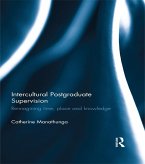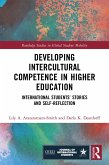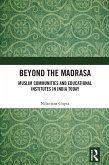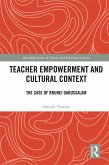This book argues that academics require more nuanced, critical and theoretically-based understandings of supervision and culture in order to engage more effectively in empowering intercultural supervision. It shows how post-colonial theory can offer fresh, critical insights into intercultural supervision by encouraging students and supervisors to bring a sense of history into their supervisory interactions.
Dieser Download kann aus rechtlichen Gründen nur mit Rechnungsadresse in A, B, BG, CY, CZ, D, DK, EW, E, FIN, F, GR, HR, H, IRL, I, LT, L, LR, M, NL, PL, P, R, S, SLO, SK ausgeliefert werden.









